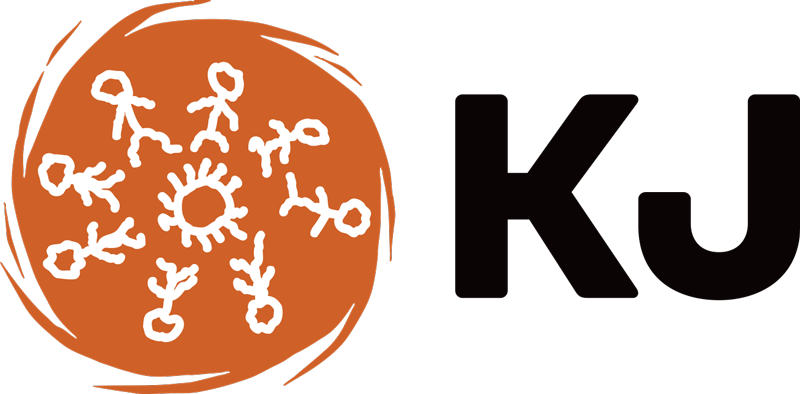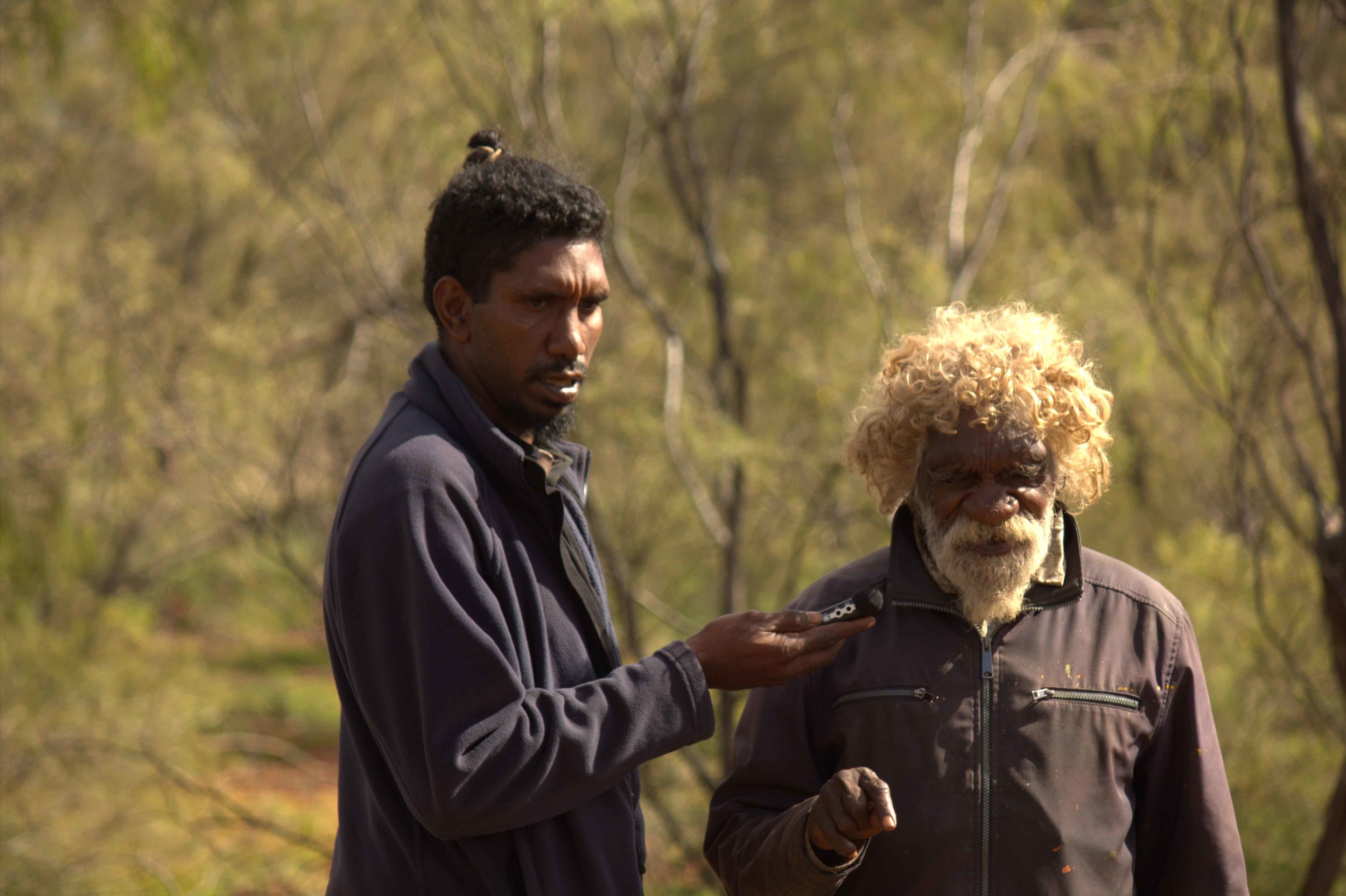
Cultural Programs
The preservation of cultural knowledge is key to maintaining Martu identity and connection to country. The Culture Program has responded to Martu aspirations and priorities to help achieve this.
The work of this program is diverse:
organising return to country trips and camps
collating genealogical information
mapping Martu country
recording oral histories from both Martu and people who have worked with them
researching and collecting historical material
collecting a vast digital archive of photos, recordings and films; and
working with Martu to preserve the rich language of elders.
Young Martu want knowledge about their country, their grandparents’ lives and their history. The program provides access to this collected traditional knowledge by harnessing modern technology in new ways.
Oral histories
Martu have a rich oral culture. In order to preserve this, KJ helps record old people’s stories of desert life, country, families and first contact with whitefellas. Over several hundred digital recordings and transcripts — dating from the 1950s to the present day — are currently in KJ’s collection.
Family trees
Knowledge of family connections — tracing back to pujiman (desert) times — is fundamental to Martu identity and to understanding their connection to specific areas. Information collected from the 1950s until today has created one of the most comprehensive genealogical records of any Aboriginal group in Australia.
Return to country (Kalyuku ninti) trips
Kalyuku ninti (return to country) trips and camps are regularly identified by Martu as the most significant activity undertaken by KJ. These trips achieve inter-generational knowledge transference: they take families back to their traditional lands, often with young people seeing their country for the first time.
Cultural archive
KJ’s cultural archive contains tens of thousands of photos, and hundreds of hours of voice recordings and film. Together, these provide a rich record of Martu and their lives from the 1930s to today. These valuable materials are accessible digitally in each community, and many locations throughout the Pilbara.
Helicopter mapping
Country is fundamental to Martu identity. By mapping important locations — waterholes, topographical features, cultural sites, historical events, family connections and language boundaries — Martu are able retain and pass on their strong cultural knowledge.
Language program
KJ has a varied language program that ensures cultural and ecological knowledge about Martu land, society and values remains alive and passed down to future generations. This is achieved by preserving the recordings of traditional language speakers, and by creating language materials from these.








